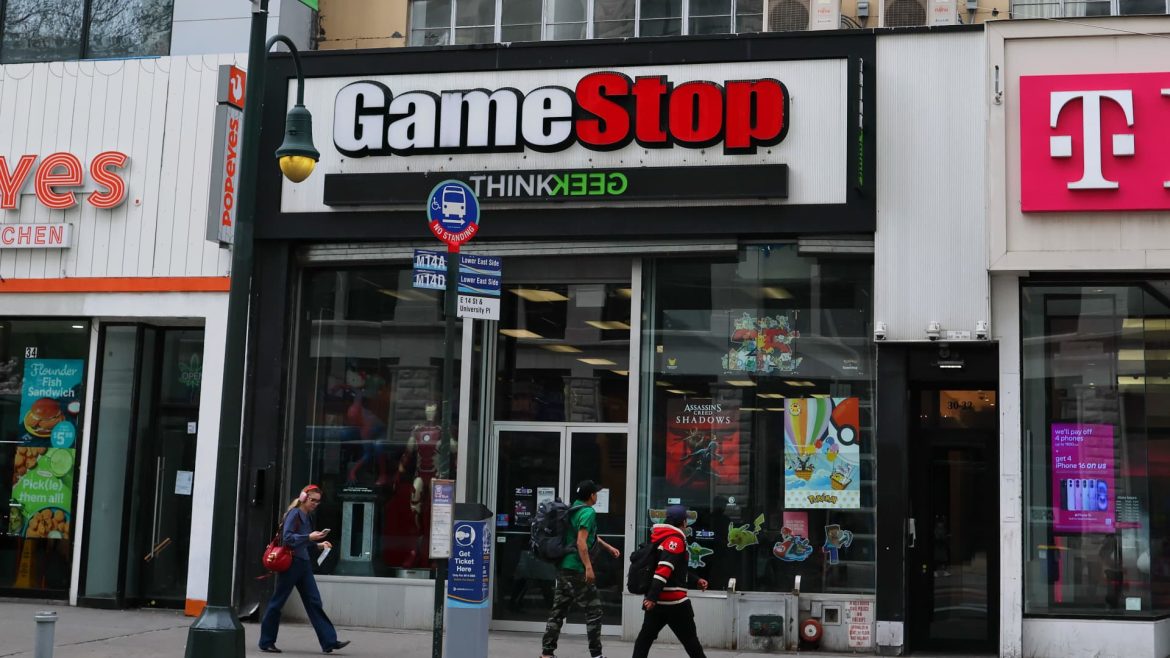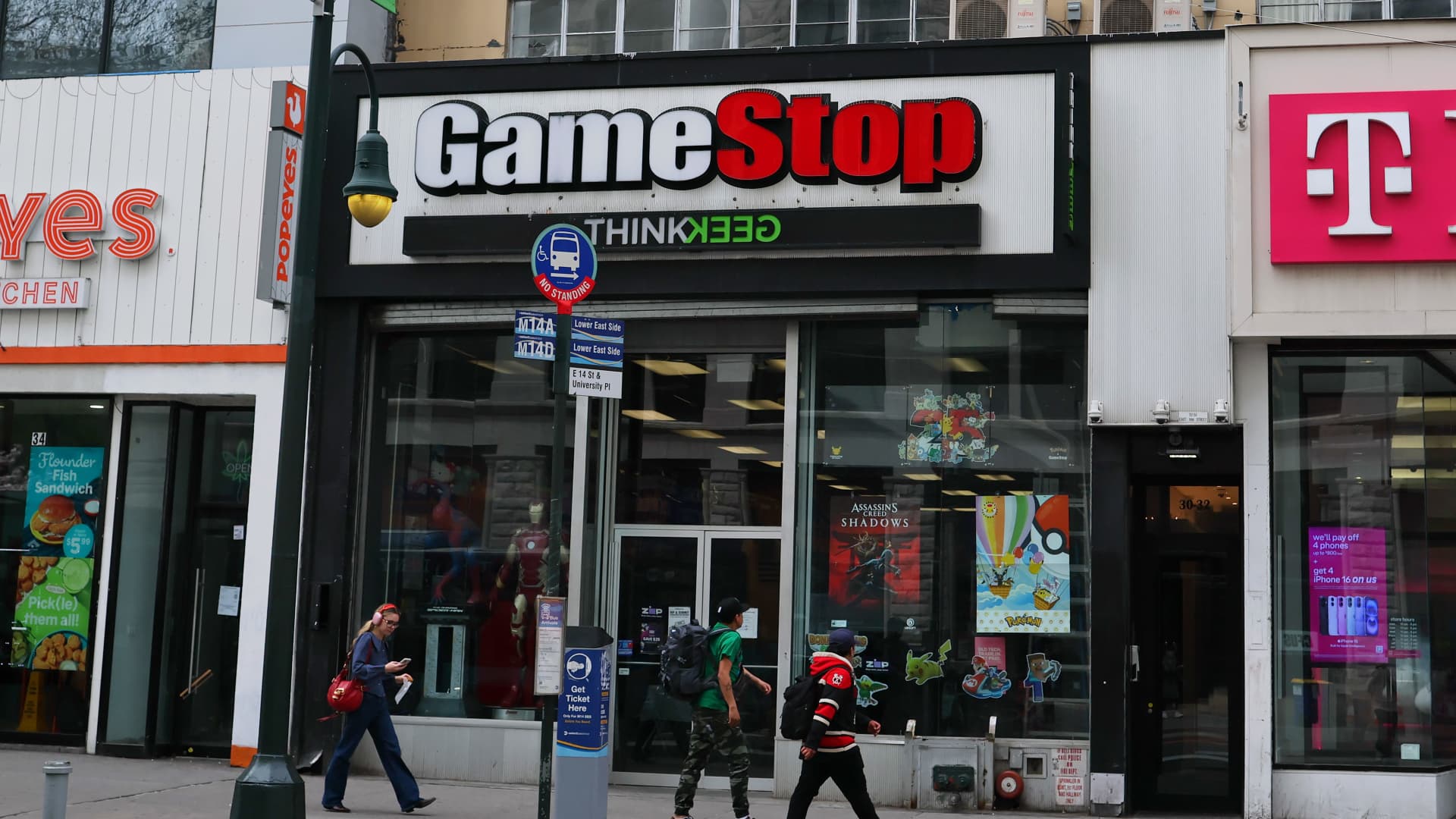GameStop’s $1.75 Billion Convertible Note Offering and Bitcoin Strategy: A Detailed Analysis
GameStop (GME), a former meme-stock sensation turned video game retailer, recently announced a significant financial move that has affected its stock price and attracted considerable market attention. The company proposed a $1.75 billion convertible senior notes offering, aimed primarily at funding additional Bitcoin acquisitions. This bold strategy echoes that of MicroStrategy, now one of the largest public holders of Bitcoin, and reflects GameStop’s pivot from gaming towards cryptocurrency investment as part of its corporate treasury strategy. The reaction from investors has been swift and somewhat adverse, as reflected in sharp declines in GameStop’s share price following the announcement. This report unpacks the key elements of this development, the rationale behind GameStop’s approach, market reactions, and implications for its future.
Understanding the Convertible Note Offering
GameStop’s plan involves issuing $1.75 billion in convertible senior notes due in 2032, carrying a zero-coupon (0.00%) rate. Convertible notes are a form of debt that allows holders to convert the notes into equity (shares) of the company under certain conditions. This financing method combines features of debt and equity, offering investors the upside potential of stock appreciation while initially providing fixed income-like characteristics.
The notes come with a planned private offering with an option for initial purchasers to buy an additional $250 million of notes within about two weeks after issuance. These zero-coupon convertible notes due in roughly a decade provide long-term funding with no immediate interest payable, insulating GameStop from short-term cash flow pressures. The company declared these proceeds would be used “in making investments,” which the market largely interprets as further Bitcoin purchases.
The Bitcoin Acquisition Strategy
GameStop followed up on its earlier foray into cryptocurrency by purchasing approximately $513 million worth of Bitcoin recently. This novel direction forms part of a broader investment policy aiming to build a cryptocurrency reserve alongside its traditional business. By raising $1.75 billion via convertible notes for further investment in Bitcoin, GameStop signals its intent to expand its holdings substantially.
The rationale mirrors a strategy employed famously by MicroStrategy (formerly Strategy), which pioneered the use of convertible bonds to build an extensive Bitcoin portfolio. MicroStrategy currently holds tens of billions of dollars in Bitcoin, betting that the cryptocurrency will appreciate over the long term and serve as a treasury asset hedge.
Market Reaction and Stock Price Impact
The immediate market response was negative and significant. GameStop’s shares fell sharply—dropping over 10% following the announcement and extending a post-earnings decline. Premarket trading saw declines reaching as high as 17%. Investors expressed concern on several fronts:
– Dilution Risk: Investors worry that conversion of notes into shares will dilute existing stockholders, a common concern when companies issue convertible debt.
– Debt Load and Financial Risk: Although the notes have no coupon, they add $1.75 billion of debt onto GameStop’s balance sheet, which could impact financial flexibility.
– Skepticism on Bitcoin Exposure: Some investors remain skeptical about GameStop’s pivot to Bitcoin, questioning its relevance to the company’s core operations and the associated volatility risks.
– Convertible Note Pricing: The pricing of the convertible notes, including any premium or conversion terms, raised concerns about potential investor disapproval reflecting in the share price.
Despite the sharp initial fall, some views suggest this could be a longer-term strategic play to position GameStop alongside companies experimenting with corporate balance sheet diversification via Bitcoin.
Broader Context and Strategic Implications
GameStop’s move to issue convertible debt to fund Bitcoin purchases is part of a broader trend among some public companies seeking to capitalize on cryptocurrency as a financial asset. This strategy attempts to leverage rising cryptocurrency markets while potentially benefiting from accounting and tax advantages related to treasury reserves in digital assets.
However, GameStop’s business fundamentals remain rooted in the retail and gaming sector, which has its headwinds including competitive pressures, shifting consumer preferences, and online distribution models. Balancing these core challenges with aggressive crypto investments is a risky but potentially transformative strategy.
The convertible notes mature in 2032, offering ample runway for GameStop to assess and capitalize on cryptocurrency market movements while managing its operational transformations. The zero-coupon nature reduces short-term cash obligations, allowing more flexibility. Yet, the expanded debt profile means the company will need to carefully navigate financial management and market sentiment going forward.
Conclusion: A High-Stakes Crypto Bet Amid Uncertain Terrain
GameStop’s $1.75 billion convertible note offering to fund further Bitcoin acquisitions marks a distinct and bold strategic pivot. Echoing MicroStrategy’s blueprint, the company is embracing cryptocurrency as a key component of its corporate treasury policy. This decision has unsettled investors, prompted material stock price declines, and injected significant financial risk onto the books.
Yet, it could also position the company uniquely at the intersection of retail, gaming, and digital asset investment—a frontier filled with opportunity but fraught with market volatility and external uncertainties. How GameStop balances its traditional retail operations with this aggressive Bitcoin strategy will be crucial to its trajectory in the coming years, making it a fascinating case study in corporate innovation and risk-taking in a rapidly evolving financial landscape.





